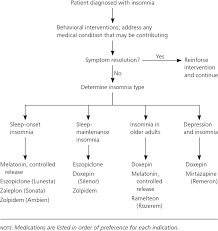Terminal insomnia, also known as late insomnia, is a type of sleep disorder characterized by difficulty staying asleep and waking up too early in the morning. Individuals with terminal insomnia often find themselves waking up several hours before their desired wake-up time and are unable to fall back asleep. This can lead to feelings of fatigue, irritability, and difficulty concentrating during the day.
There are various factors that can contribute to terminal insomnia, including stress, anxiety, depression, poor sleep habits, medical conditions, or medication side effects. It is essential to address these underlying causes to effectively manage terminal insomnia and improve sleep quality.
Here are some strategies that can help individuals cope with terminal insomnia:
- Establish a bedtime routine: Creating a consistent bedtime routine can signal to your body that it’s time to wind down and prepare for sleep. Activities such as reading a book, taking a warm bath, or practicing relaxation techniques can help promote better sleep.
- Avoid stimulants: Limiting the consumption of caffeine, nicotine, and alcohol close to bedtime can prevent disruptions in your sleep cycle. These substances can interfere with your ability to fall asleep and stay asleep throughout the night.
- Manage stress: Practicing stress-reducing techniques such as mindfulness meditation, deep breathing exercises, or yoga can help calm your mind and body before bedtime. Addressing sources of stress in your life can also improve your overall sleep quality.
- Create a comfortable sleep environment: Ensure that your bedroom is conducive to sleep by keeping it dark, quiet, and cool. Investing in a comfortable mattress and pillows that support proper spinal alignment can also enhance your ability to stay asleep throughout the night.
- Consult a healthcare professional: If terminal insomnia persists despite trying self-care strategies, it’s important to seek guidance from a healthcare provider. They can evaluate any underlying medical conditions or medication effects contributing to your sleep disturbances and recommend appropriate treatment options.
By addressing the root causes of terminal insomnia and incorporating healthy sleep habits into your daily routine, you can improve the quality of your sleep and enhance your overall well-being.
Understanding Terminal Insomnia: Answers to 9 Common Questions
- What is terminal insomnia?
- What are the symptoms of terminal insomnia?
- What causes terminal insomnia?
- How is terminal insomnia diagnosed?
- What are the effects of terminal insomnia on overall health?
- What lifestyle changes can help manage terminal insomnia?
- Are there any medical treatments available for terminal insomnia?
- Can stress and anxiety exacerbate symptoms of terminal insomnia?
- When should I seek professional help for my terminal insomnia?
What is terminal insomnia?
Terminal insomnia, also known as late insomnia, is a sleep disorder characterized by the difficulty of staying asleep and waking up too early in the morning. Individuals with terminal insomnia often experience fragmented sleep patterns, where they find themselves waking up several hours before their intended wake-up time and struggle to fall back asleep. This type of insomnia can lead to feelings of daytime fatigue, irritability, and impaired cognitive function. Addressing underlying factors such as stress, anxiety, poor sleep habits, or medical conditions is crucial in managing terminal insomnia and promoting better sleep quality.
What are the symptoms of terminal insomnia?
Individuals experiencing terminal insomnia may exhibit symptoms such as difficulty staying asleep, waking up multiple times during the night, and consistently waking up earlier than desired in the morning. This type of sleep disorder can lead to feelings of exhaustion, irritability, and impaired cognitive function during the day. Other common symptoms of terminal insomnia include persistent fatigue, mood disturbances, and an overall sense of unrest due to the disrupted sleep pattern. It is essential to recognize these symptoms and seek appropriate guidance from healthcare professionals to address the underlying causes and improve sleep quality.
What causes terminal insomnia?
Terminal insomnia, also known as late insomnia, is often caused by various factors such as stress, anxiety, depression, poor sleep habits, medical conditions, or medication side effects. Individuals experiencing terminal insomnia may find themselves waking up too early in the morning and struggling to fall back asleep. Stress and anxiety can lead to hyperarousal of the nervous system, making it difficult to maintain deep sleep throughout the night. Additionally, underlying medical conditions like sleep apnea or restless leg syndrome can disrupt sleep patterns and contribute to terminal insomnia. Identifying and addressing these root causes is crucial in effectively managing terminal insomnia and improving overall sleep quality.
How is terminal insomnia diagnosed?
Diagnosing terminal insomnia typically involves a comprehensive evaluation by a healthcare provider, such as a primary care physician or sleep specialist. The diagnostic process may include a detailed medical history review, discussion of sleep patterns and symptoms, and possibly the completion of sleep logs or questionnaires to assess the severity of insomnia symptoms. In some cases, a sleep study, known as polysomnography, may be recommended to monitor and analyze an individual’s sleep patterns and identify any underlying sleep disorders contributing to terminal insomnia. By gathering this information and collaborating with healthcare professionals, an accurate diagnosis of terminal insomnia can be made, leading to personalized treatment strategies tailored to improve sleep quality and overall well-being.
What are the effects of terminal insomnia on overall health?
Terminal insomnia can have significant effects on overall health due to its disruptive nature on sleep patterns. Individuals experiencing terminal insomnia may suffer from chronic sleep deprivation, leading to daytime fatigue, irritability, difficulty concentrating, and impaired cognitive function. Prolonged sleep disturbances can weaken the immune system, increase the risk of developing mood disorders such as depression and anxiety, and contribute to a higher likelihood of accidents or errors in daily activities. Additionally, inadequate sleep resulting from terminal insomnia can impact cardiovascular health, metabolism, and overall quality of life. It is crucial to address and manage terminal insomnia promptly to mitigate its adverse effects on both physical and mental well-being.
What lifestyle changes can help manage terminal insomnia?
Making lifestyle changes can be instrumental in managing terminal insomnia. Establishing a consistent bedtime routine, avoiding stimulants like caffeine and alcohol before sleep, managing stress through relaxation techniques, creating a comfortable sleep environment, and seeking guidance from healthcare professionals are all effective strategies to improve sleep quality and address the challenges of terminal insomnia. By incorporating these lifestyle changes into daily habits, individuals can take proactive steps toward better managing terminal insomnia and promoting restful sleep.
Are there any medical treatments available for terminal insomnia?
Medical treatments for terminal insomnia typically focus on addressing underlying causes of the sleep disorder and may include prescription medications or therapies. Healthcare providers may recommend medications such as sedatives, hypnotics, or antidepressants to help individuals with terminal insomnia improve their sleep quality and duration. However, it’s essential to consult a healthcare professional before starting any medication to ensure safety and effectiveness, as well as to discuss potential side effects and risks associated with long-term use. Additionally, complementary therapies such as cognitive-behavioral therapy for insomnia (CBT-I) may be recommended to address behavioral patterns contributing to terminal insomnia and promote healthy sleep habits.
Can stress and anxiety exacerbate symptoms of terminal insomnia?
Stress and anxiety can indeed exacerbate symptoms of terminal insomnia. The heightened levels of stress and anxiety can lead to racing thoughts, restlessness, and an inability to relax the mind and body, making it challenging to fall asleep and stay asleep throughout the night. Individuals experiencing stress and anxiety may find themselves waking up too early in the morning and struggling to return to sleep, contributing to the cycle of terminal insomnia. Addressing stress and anxiety through relaxation techniques, mindfulness practices, therapy, or medication management can help alleviate these symptoms and improve sleep quality for individuals struggling with terminal insomnia.
When should I seek professional help for my terminal insomnia?
If you are experiencing persistent terminal insomnia that significantly impacts your daily functioning, it may be time to seek professional help. Signs that indicate the need for professional intervention include ongoing difficulty staying asleep, waking up too early and being unable to fall back asleep, feeling excessively fatigued or irritable during the day, and noticing a decline in your overall quality of life due to sleep disturbances. Consulting a healthcare provider or sleep specialist can help identify underlying causes of terminal insomnia, such as medical conditions or medication side effects, and develop an appropriate treatment plan to improve your sleep quality and overall well-being.



